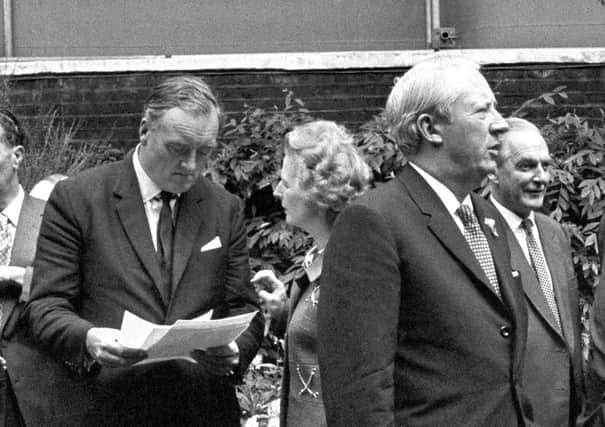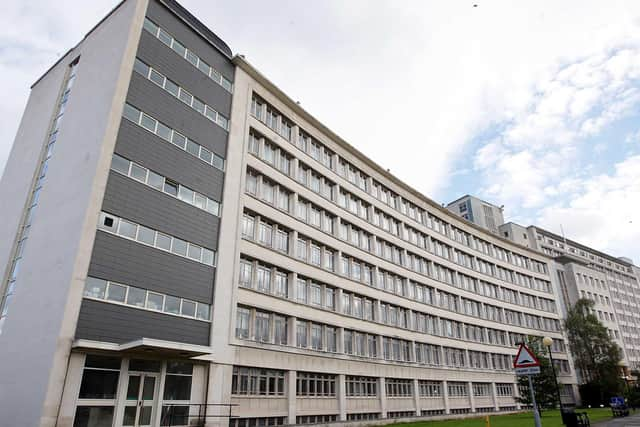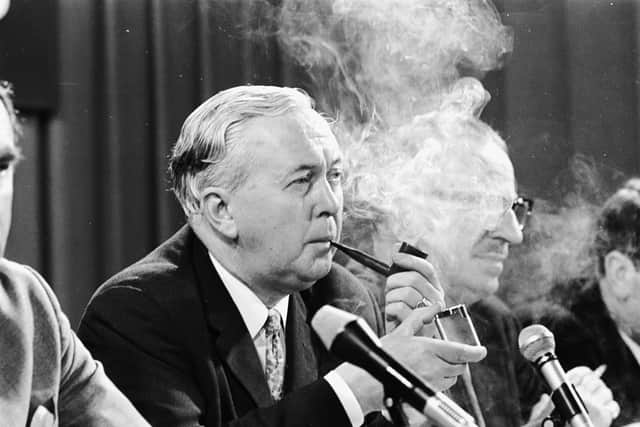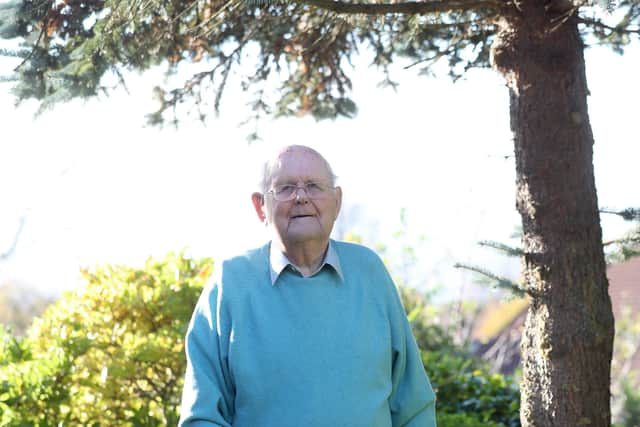Civil Servant memoir: ‘Angry calls came thick and fast on news of Whitelaw’s meeting with IRA’


(See below for links to earlier sections of this memoir)
In those first few months after the takeover by direct rule ministers in early 1972, I had a multiplicity of jobs at Stormont Castle, which I had joined in January 1970.
These jobs included taking the minutes of the secretary of state’s Executive Committee (“morning prayers”) assisting in the William Whitelaw Private Office and acting as Private Secretary to Lord Windlesham.


That last job caused me a moment of intense embarrassment.
Advertisement
Hide AdAdvertisement
Hide AdI was escorting his lordship round the different departments in Dundonald House.
The hand-over was on one of the vestibules overlooking the expansive Stormont Estate on the one side and Knock Golf Club on the other.
Having said goodbye to one permanent secretary, I introduced the next one.


Looking out at the view, Lord Windlesham (who happened to be a Roman Catholic) said:
Advertisement
Hide AdAdvertisement
Hide Ad“It all seems very peaceful out here”, whereat the Permanent Secretary responded.
“Oh yes, my Lord, all good Protestant country here.”
From his arrival in April 1972, Mr Whitelaw had consistently denied any contact by himself, his ministers or staff with the IRA.


He deliberately refrained from mentioning that the Foreign and Commonwealth Office met IRA leaders first at the Conway Hotel and later near the golf club at Craigavad!
During this time, Mr Whitelaw had been befriended and taken out to golf by a small group of influential people including Willoughby Wilson, the distinguished surgeon. On the night in July that the news broke that Mr Whitelaw had met the IRA leaders in Paul Channon’s house in London, I happened to be on duty in the castle.
Advertisement
Hide AdAdvertisement
Hide AdThe telephone calls of anger and outrage came in thick and fast. One of the calls was from Willoughby Wilson, who branded Mr Whitelaw as a liar and cheat, ending “... and by the way, Mr Duncan, not a very good golfer”.
Discussions on a political settlement continued through the second half of 1972 and the first half of 1973.
On June 28, elections for a new Stormont Assembly took place under Proportional Representation rules.
My job was to take Stan Orme, Labour, then in opposition, to a representative selection of polling stations.
Advertisement
Hide AdAdvertisement
Hide AdWe started off in Newtownbreda, then Magherafelt and Drumahoe.
As we approached Londonderry, I told Mr Orme that we were booked in for lunch at the Everglades Hotel.
“No need for that” he responded “Pat will give us lunch”.
Pretending ignorance, I enquired who Pat was.
“Why, Pat Hume of course”.
I pointed out that as he, Mr. Orme, was supposed to be an impartial observer, the press would have a field day if they found him going in to lunch at the home of John Hume, the leader of the SDLP.
We had an excellent lunch at the Everglades, then visited a polling station on each side of the river and headed for home.
Advertisement
Hide AdAdvertisement
Hide Ad• While in opposition, Harold Wilson paid a visit to Northern Ireland.
Mr Wilson had been prime minister from 1964 until June of 1970, and I had joined Stormont Castle in January of that year. He was leader of the Labour opposition from June until early 1974, when he returned to Downing Street.
During that visit as opposition leader he had a ‘working dinner’ in Stormont Castle.
The home team included not only the NI Cabinet but also the junior ministers.
Advertisement
Hide AdAdvertisement
Hide AdI gave full marks to Mr Wilson for his ability to relate to several of our ministers personally.
One I remember in particular. After some banter about 1690 he turned to Albert Anderson from Londonderry and said “or, in your case Mr Anderson, 1689”.
I gave no marks to a couple of our junior ministers who, as the evening became more convivial rather let the side down.
They also made my job as minute taker almost impossible!
At the conclusion of the meeting, Mr Wilson had the courtesy to come over to my side table and exchange pleasantries.
Advertisement
Hide AdAdvertisement
Hide AdSo unlike Ted Heath, who replaced him as prime minister in 1970, and who on the one occasion I met him, offered only a cold stare and a weak handshake.
• Sinclair Duncan in the NI Civil Service from 1949 to 1985. He worked at in the ministries of Education, Finance and Agriculture, the Cabinet Office, Office of the Executive, NIO and the Department of Environment. The rest of this memoir will be published daily in the News Letter this week
——— ———
A message from the Editor:
Advertisement
Hide AdAdvertisement
Hide AdThank you for reading this story on our website. While I have your attention, I also have an important request to make of you.
With the coronavirus lockdown having a major impact on many of our advertisers — and consequently the revenue we receive — we are more reliant than ever on you taking out a digital subscription.
Subscribe to newsletter.co.uk and enjoy unlimited access to the best Northern Ireland and UK news and information online and on our app. With a digital subscription, you can read more than 5 articles, see fewer ads, enjoy faster load times, and get access to exclusive newsletters and content. Visit https://www.newsletter.co.uk/subscriptions now to sign up.
Our journalism costs money and we rely on advertising, print and digital revenues to help to support them. By supporting us, we are able to support you in providing trusted, fact-checked content for this website.
Alistair Bushe
Editor